is that possible to automate these mappings with reflection?
i have a simple column mapping :
var columnsMap = new Dictionary<string, Expression<Func<Industry, object>>>
{
["id"] = v => v.Id,
["name"] = v => v.Name,
["isActive"] = v => v.IsActive
};
columnsMap run-time result:
i want to automate these mappings in a wrapper class:
public class QueryColumnMapper<T> : Dictionary<string, Expression<Func<T, object>>>
{
public QueryColumnMapper<T> GenerateMappings()
{
foreach (var item in typeof(T).GetProperties())
{
// get dictionary key ======> its OK
var name = Char.ToLowerInvariant(item.Name[0]) + item.Name.Substring(1); //camel-case name
// get expression =======> this is the problem. wrong way
Expression<Func<T, object>> exp = v => v.GetType().GetProperty(item.Name);
//Expression<Func<T, object>> exp = v => v.?????; <-----
// add to mapper object
this.Add(name, exp);
}
return this;
}
}
example of using this class:
var columnsMap = new QueryColumnMapper<Industry>().GenerateMappings();
i don't know is that possible to get my expression dynamically in run-time?
( i'm using this mapping dictionary for apply filtering on entity-framework IQueryable query. with first example (manual mapping) its working but i don't know how to do that in run-time without manual mapping )

